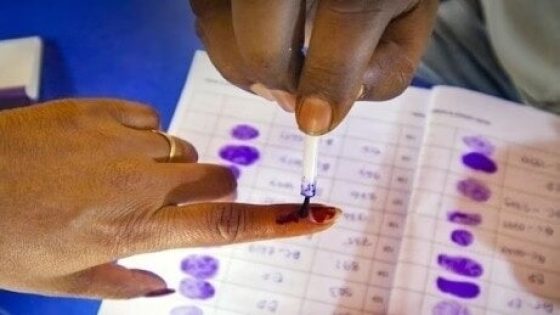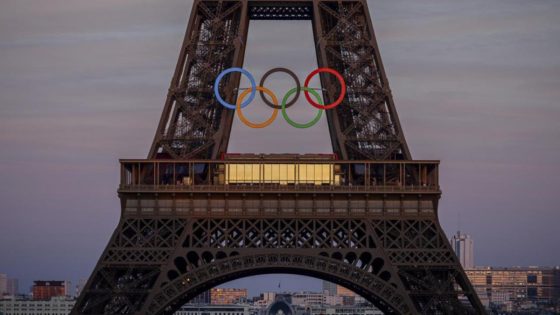The Bharatiya Janata Party (BJP) lost majority in the Lok Sabha after a decade, even though with 240 seats it is still the single largest party in the Lower House. However, it is becoming increasingly clear now that the party’s electoral plank of 370 seats for the BJP and 400-plus for the National Democratic Alliance (NDA) failed miserably.
More than any other factor it was the “Char Sau Par” slogan that seems to have hurt the BJP the most. Some party leaders and candidates used this slogan during their campaign to convince the voters that “we need 400 seats to change the Constitution”. Even Prime Minister Narendra Modi mentioned something to the effect that “we want to take some big decisions in the next government and therefore we need a strong majority”.
It’s quite possible that the BJP and its leaders set the “400 par” benchmark just to boost the morale of their cadres and attract the fence sitters, the floating voters who usually go to the winning side. However, this slogan backfired on them badly. The Opposition went to town with this slogan, claiming that it was an attack on the Constitution, and tried to convince the voters that if the BJP came to power with a brute majority, it would change the Constitution.
It must be remembered here that the Constitution is usually a subject of discussion among the elites mostly, but it is also a symbol of empowerment for the majority Dalit-Bahujan population of this country. This population has always believed that it is the Constitution that has emancipated them from the centuries of caste discrimination in society. The abolition of untouchability and the implementation of reservation through the Constitution have enabled them to become empowered.
It is not surprising then that in this Lok Sabha election the Opposition managed to make the issue of “Constitution in danger” the biggest talking point among the non-elites – the ordinary voter sensed a threat to her existence if the Constitution was changed. Especially the Dalits felt they would lose their source of empowerment. In Mohanlalganj (Uttar Pradesh) parliamentary constituency, this author met a group of Pasi community voters, who said: “In the past, we did not vote for the Samajwadi Party (SP), but this time we will vote for them because the BJP wants to change the Constitution and the Opposition is against this.” The BJP lost in Mohanlalganj after 10 years.
Uttar Pradesh is the state where the BJP lost half of the seats and came second after the SP. The BJP lost 8 per cent votes in the state this time in comparison to the 2019 Lok Sabha election. The bulk of the BJP’s loss came from the backward community and among Dalits.
DALIT SUPPORT IN NUMBERS
In this election, more than any community, it is the Scheduled Castes (Dalits) who have shifted more towards the Opposition alliance. The SCs constitute 17 per cent of the total population in India and the weighted data from the India Today-Axis My India survey suggests that the NDA lost the support among the SCs, while the Opposition gained it. The BJP-led NDA lost 6 per cent votes among SCs while the Congress-led INDIA gained double-digit vote share among the SCs. The NDA’s support base came down to 35 per cent this time from 41 per cent in the 2019 Lok Sabha polls. On the other hand, the Opposition support base has gone up to 46 per cent in 2024, 18 per cent more than in the 2019 Lok Sabha. The net gap between NDA and INDIA is 11 per cent in favour of the latter.
The other important factor that emerged from the data was that those parties that were not part of either NDA or INDA lost more support among the SCs. The non-NDA and non-INDIA parties lost 12 per cent support among the SCs voters this time. In the 2019 Lok Sabha election, the INDIA group had less support among SCs than the NDA and others. However, in the 2024 Lok Sabha, INDIA received the highest share (almost half – 46 per cent) of the SCs votes.
In terms of the individual performance of the BJP and Congress, the electoral outcome has also changed significantly in the 84 SC reserved constituencies in the country. Among these 84 parliamentary constituencies, in 2019, the BJP had received 35 per cent of votes and the Congress received 17 per cent of the votes, which means the BJP’s vote share in these constituencies was double that of the Congress’ vote share. In terms of vote share, the BJP did not lose significantly in these constituencies, but the Congress made big gains. The Congress vote share jumped to 21 per cent, just 4 per cent more than in 2019, but their seat share increased in 2024 more than three times in 2019. The Congress won 20 seats this time compared to just 6 seats in 2019. The Congress’ gain comes directly at the cost of the BJP. The saffron party, which won 46 out of the 84 SC reserved seats in 2019, was reduced to just 30 seats this time. That means the BJP lost 16 seats, which is almost one-fourth of the total number of seats that the BJP lost in this election.
THE EMERGING TRENDS
The data suggests the incumbent NDA lost a significant share among SC voters, and this group constitutes 17 per cent of the total electorate, so no party can afford to lose them. The Congress was their traditional party, but with the emergence of the BSP and other regional caste-based parties, they moved away from the grand old party.
In the last 10 years, the BJP had become the largest beneficiary of the SC voter base, but in 2024, this trend was countered by the Congress which managed to win them over and make significant gains among this community. Given that the BSP has been continuously on the decline, the Congress regaining its traditional SC support base would hurt the BJP the most.
According to the Election Intelligence (EI) dashboard of India Today, there are 156 parliamentary constituencies where the SC votes are in significant numbers. Of these 156 seats, INDIA won 93 and NDA won 57 seats. The NDA lost 34 and INDIA gained 53 seats this time from the 2019 Lok Sabha.
If the BJP does not address its campaign mistakes, it could negatively impact its electoral prospects.
Post Script: On the topic of Constitution and the Dalit-Bahujan vote bank, a strong messaging was seen during the NDA meeting in the old Parliament building, where PM-designate Narendra Modi bowed with folded hands to a copy of the Indian Constitution, picked it up with both hands and touched it with his forehead in reverence.
(Ashish Ranjan is a political analyst and co-founder of Datalok.in)
Source Agencies



